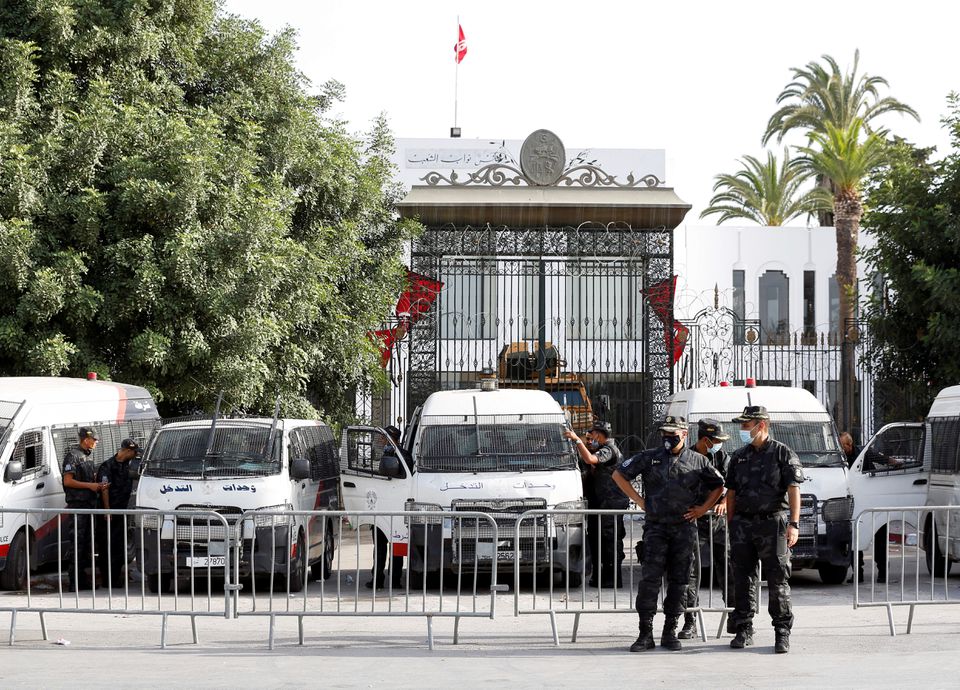
Tunisian Islamists Move to Ease Tensions, Unions Demand Roadmap
Tunisia’s leading Islamist party moved on Tuesday to ease the country’s political crisis, calling for dialogue and urging supporters not to protest after accusing President Kais Saied of launching a coup.
Tunisia faced its worst political crisis in a decade of democracy after Saied, backed by the army, sacked the prime minister and froze parliament on Sunday, sparking concern in Western capitals that have praised its transition from autocracy since the Arab Spring uprisings of 2011.
Influential civil society groups, including the powerful labour union, warned Saied not to extend extraordinary measures he announced on Sunday beyond a month and called on him to lay out “a participatory roadmap” out of the crisis.
There was no sign of tension in the capital where supporters and opponents of Saied’s moves had scuffled on Monday. The streets were calm, with no significant protests or heightened security presence.
Saied’s actions followed months of deadlock and disputes pitting him against Prime Minister Hichem Mechichi – also a political independent – and a fragmented parliament as Tunisia suffered an economic crisis exacerbated by one of Africa’s worst COVID-19 outbreaks.
Many Tunisians, tired of political paralysis and a moribund economy, took to the streets in a show of support for Saied on Sunday. “We have been silent for 10 years and we live in distress for 10 years and now people are sick and don’t know how to treat themselves,” said Halma Talbi, a woman in Tunis.
But the moderately Islamist Ennahda movement, the biggest party in parliament, and the next three largest parties have all denounced the moves as a coup.
Reversing a call on its supporters on Monday to take to the streets against Saied, Ennahda urged dialogue and efforts to avoid civil strife.
“The movement … calls on all Tunisians to increase solidarity, synergy and unity and to confront all calls for sedition and civil strife,” it said in a statement.

